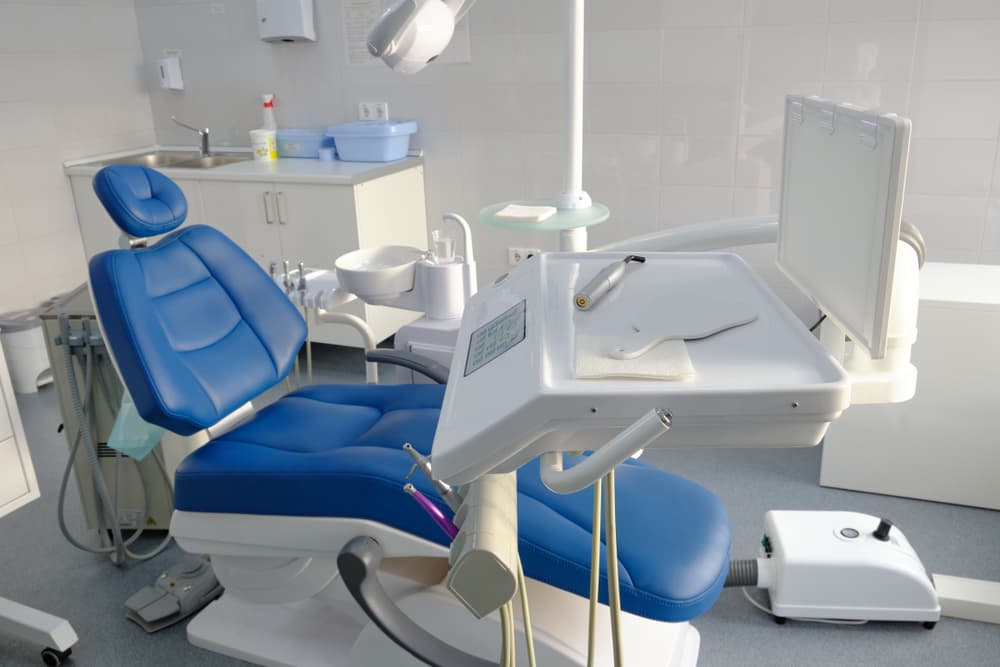How to Find a Dental Practice to Purchase – Brokers: What They Are and What They Aren’t
Are you a dentist looking to purchase your first practice or expand by acquiring an additional location? Finding the right dental practice for sale is one of the first and most important steps. Many dentists turn to brokers to help them navigate this complex process.
When working with a broker, you should also have a dental practice purchase agreements attorney protecting your interests, as disputes can arise.
What is a Dental Practice Broker?

A dental practice broker is a professional who facilitates the sale and purchase of dental practices. They act as intermediaries between sellers and buyers, helping to match dentists looking to sell with those wanting to acquire a practice. Brokers have extensive knowledge of the dental industry and stay current on market trends, valuations, and regulatory issues.
Brokers can work independently or as part of a larger brokerage firm. Some focus exclusively on dental practices, while others may handle transactions across various healthcare specialties. It is important to work with a broker with a proven track record and a deep understanding of the unique aspects of dental practice sales.
Services Provided by Dental Practice Brokers
One of the primary roles of a broker is to list dental practices that are available for purchase. They work with selling dentists to gather detailed information about the practice, including financials, patient base, equipment, and real estate. The broker then creates a comprehensive listing and markets it to potential buyers through their network and various advertising channels.
Qualifying and Matching Buyers
When a dentist expresses interest in purchasing a practice, the broker will pre-qualify them to ensure they are a serious buyer with the financial means to complete the transaction. They gather information about the buyer’s background, experience, and goals to determine whether they fit the practice well. The broker then facilitates introductions and information sharing between qualified buyers and sellers.
Assisting with Due Diligence
Once a potential match happens, the broker assists both parties with the due diligence process. This involves providing the buyer with detailed financial records, practice data, and other relevant information. The broker may also coordinate site visits and meetings between the buyer and seller. They help answer questions and address concerns to keep the process moving forward.
Negotiating Terms and Price

Brokers play a key role in negotiating the terms and price of the practice sale. They work to find a fair and acceptable middle ground for both the buyer and seller. This includes the purchase price and issues like financing, transition planning, and post-sale employment or consulting arrangements for the selling dentist.
Coordinating with Other Professionals
Dental practice sales involve a team of professionals beyond the broker. Attorneys, accountants, lenders, and others play important roles. A good broker will have established relationships with reputable professionals in each of these areas. They coordinate and communicate with all parties to ensure a smooth and efficient transaction.
What Dental Practice Brokers Don’t Do
Brokers are not attorneys and cannot provide legal advice. They can give general information and share their experience, but you need to consult a qualified dental attorney for specific legal guidance. This is especially true when reviewing and negotiating contracts, handling real estate matters, and ensuring regulatory compliance.
Conduct Comprehensive Valuations
Most brokers will provide a basic valuation or appraisal of the practice based on industry benchmarks and their knowledge of the local market. However, you should work with a specialized dental CPA or valuation expert for a truly comprehensive and reliable valuation. They will dive deep into the practice’s financials, patient data, and other factors to determine a fair and accurate value.
Arrange Financing
While some brokers may have relationships with lenders and can provide general information about financing options, they do not actually arrange or underwrite loans. As the buyer, you must work directly with banks or other lending institutions to secure the necessary financing for your practice purchase. The broker can provide guidance and connect you with potential lenders, but the ultimate responsibility for obtaining funding lies with you.
Guarantee Success
No broker can guarantee that they will find the perfect practice for you or that the transaction will go smoothly. Many factors are beyond their control, such as the seller’s willingness to negotiate, issues uncovered during due diligence, or changes in the lending environment. A good broker will work on your behalf and do everything possible to achieve a successful outcome, but there are no guarantees.
Key Considerations When Buying a Dental Practice

The location of the practice is key. Consider the local population, demographics, and growth potential. Is the area well-suited to your specialty? Is there a strong demand for dental services? Are there many competing practices nearby? A good location can set you up for long-term success.
Practice Type and Size
Decide what type and size of practice you are looking for. Do you want a general dentistry practice or one focused on a particular specialty? Are you interested in a solo practice, partnership, or group setting? Consider your personal preferences and career goals when evaluating practices.
Financials and Profitability
Carefully review the practice’s financial records, including tax returns, profit and loss statements, and balance sheets. Look for consistent revenue growth, healthy profit margins, and a diverse payor mix. Consider the practice’s debt load and future capital needs.
Patient Base and Reputation
Evaluate the practice’s active patient base, new patient flow, and retention rates. Is the patient population a good fit for your skills and style of dentistry? Research the practice’s reputation in the community and online reviews to gauge patient satisfaction.
Equipment and Technology
Assess the condition and age of the practice’s equipment and technology. Will you need to invest in upgrades or replacements in the near future? Consider your own preferences for dental technology and whether the practice’s current setup aligns with your needs.
Staff and Culture
Get to know the practice’s staff and observe the office culture. Are the employees experienced, skilled, and likely to stay on after the transition? Does the practice culture align with your values and management style? A strong, cohesive team can greatly contribute to a smooth transition and ongoing success.
Seller’s Motivation and Transition Plan
Understand the selling dentist’s reasons for selling and their post-sale plans. Are they retiring, relocating, or switching careers? Are they willing to stay on for some time to ensure a smooth transition? A cooperative seller committed to supporting your success can make a big difference.
Seek Out a Reputable Dental Lawyer
If you are considering buying a dental practice, don’t do it alone. Seek out a reputable dental practice broker and a skilled dental lawyer. With their support and your own careful due diligence, you can find the perfect practice to build your future in dentistry.
Contact a qualified dental attorney today for legal guidance on your dental practice purchase. An attorney can help set you up for success as a practice owner.
